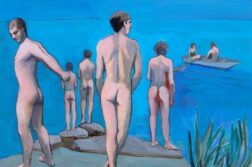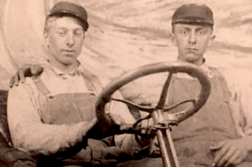NO ONE TALKS about gay literature anymore. The topic sounds quaint, hardly cutting edge. And indeed its moment may well have passed. Edmund White says that it “has come and gone as a … serious movement.” Yet, I think we need to talk about gay literature again, because the silence may tell us a good deal about how we live now. My approach to the topic, however, may seem a little recherché: I want to discuss gay literature as a minor literature.
For quite some time, the second generation of queer theorists has wanted to shed the “minoritizing” stance they associate with “old” gay culture and assert a “universalizing” attitude that is young and trendy (Sedgwick, 1990). Why go back to explore queer literature as what Gilles Deleuze and Félix Guattari (1983) call a “minor literature”? One answer is “A minor literature is not,” according to Deleuze and Guattari, “the literature of a minor language” or the literature of minor importance; rather it is “the literature a minority makes in a major language.” A minor literature doesn’t start from scratch; it uses the language of its ethnic, racial, religious language communities. A minor literature develops its own language out of the dominant language. It is a way of “signifying,” to use a term from African American culture. And if gay people have stopped signifying, we may well have lost our significance. The language that we make is central to our ability to speak.
One of the characteristics of a minor literature, according to Deleuze and Guattari, is that it has no “master writers,” because “talents do not abound in a minor literature.” Ironically, of course, they are discussing Franz Kafka as a product of a minor literature. Likewise in the U.S., virtually all of our major writers could be said to have developed within a minor literature. Indeed, we could call American literature a nest of minor literatures. For what is the New England WASP language of Updike and Cheever if not the product of a minority enclave?
What has changed for many writers is that their identification with a minor literature does not hurt their standing in the larger literary community.







